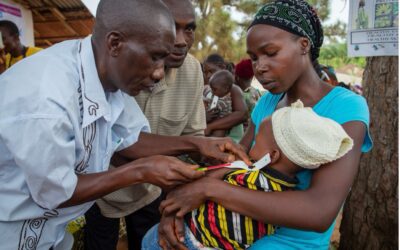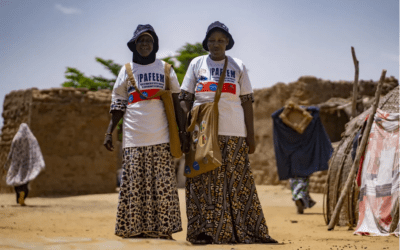Each year, January 30 marks World Neglected Tropical Diseases Day, a World Health Organisation (WHO) initiative that sheds light on the need to address these devastating yet preventable illnesses. Affecting an estimated 1 billion people, primarily in underserved communities, neglected tropical diseases (NTDs) perpetuate cycles of poverty, disability, and stigma.
NTDs, including diseases like leprosy, schistosomiasis, and lymphatic filariasis, disproportionately impact regions with limited access to healthcare and essential resources. Despite their prevalence, these diseases remain largely underfunded and overlooked in global health priorities.
Pharmalys stands with WHO against NTDs
At Pharmalys, we stand with WHO and global stakeholders in the fight against NTDs. We believe that strengthening health systems, promoting access to research and treatment, and fostering collaborative partnerships are crucial steps toward eliminating these diseases and improving health equity.
WHO has identified five core strategic interventions that are key to advancing the prevention, control, and eventual elimination of NTDs. These include innovative disease management, preventive chemotherapy, vector control, veterinary public health, and ensuring access to safe water, sanitation, and hygiene. While each intervention may play a significant role in controlling certain diseases, we know that combining all of these approaches yields the most effective results in reducing both disease burden and transmission.
To accelerate progress towards 2030 targets, WHO has also recognised the importance of tackling specific challenges. These include understanding the impact of climate change on NTDs and adapting interventions where necessary, identifying gaps in research and development that hinder the effectiveness of NTD interventions, ensuring that supply chains are robust enough to deliver essential medicines on time, and strengthening data collection systems to track progress in real time.
The fight against NDTs must go on
While World NTD Day serves as a reminder of the challenges ahead, it also highlights the progress made. In recent decades, the number of people needing interventions for NTDs has dropped significantly—by 31%, from 2.19 billion to less than 1.5 billion between 2010 and 2023. By the end of 2024, 54 countries had successfully eliminated at least one NTD, marking significant progress. Each year, millions of people at risk of NTDs receive treatment or care. Partnerships such as the one between the Global Health Innovative Technology (GHIT) Fund and the World Health Organisation (WHO) are crucial to this progress.
By prioritising research, mobilising resources, raising awareness, and implementing sustainable strategies, the global fight against NTDs has made remarkable progress. Combined with efforts like preventive treatment, vector control, and educational campaigns, these efforts highlight the importance of global cooperation in creating lasting change.
Together, we can continue to support initiatives that count every community in the fight against NTDs.
Milena Henderson
Project Manager – Marketing & Communication
Source:
https://www.who.int/news-room/questions-and-answers/item/neglected-tropical-diseases#:~:text=It%20is%20estimated%20that%20NTDs,often%20related%20to%20environmental%20conditions.
https://www.who.int/news/item/11-12-2024-partnership-established-to-advance-who-s-road-map-for-neglected-tropical-diseases-2021-2030











